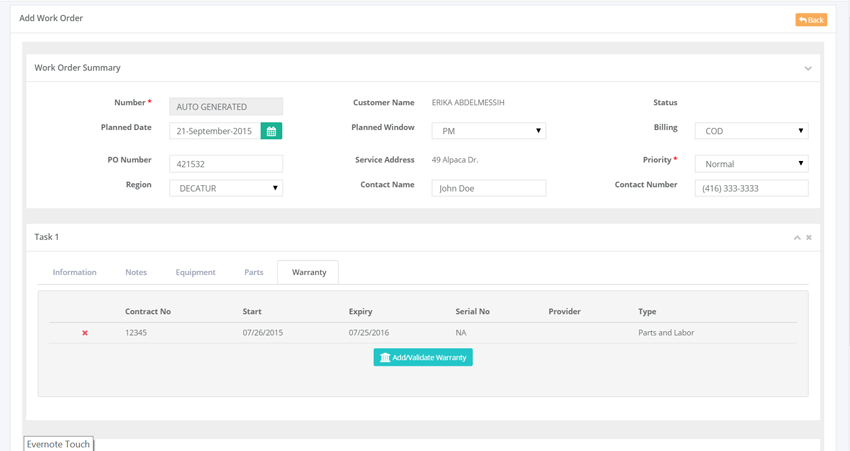Dispatch System Software

Dispatch system software is an integral component of modern transportation and logistics operations, playing a pivotal role in optimizing efficiency, enhancing customer satisfaction, and driving business success. In today's fast-paced world, where time is a precious commodity, the effective management of resources and timely delivery of services are paramount. This comprehensive guide delves into the intricacies of dispatch system software, exploring its functionalities, benefits, and the transformative impact it has on various industries.
Revolutionizing Transportation and Logistics

The evolution of dispatch system software has revolutionized the way transportation and logistics businesses operate. With the advent of advanced technologies, these systems have become sophisticated tools that go beyond simple scheduling and dispatch. They now encompass a wide range of features designed to streamline operations, improve communication, and maximize resource utilization.
One of the key strengths of dispatch system software lies in its ability to provide real-time visibility. Through advanced tracking and monitoring capabilities, businesses can keep a close eye on the movement of their fleet, ensuring that vehicles and personnel are deployed efficiently. This real-time insight allows for prompt decision-making, enabling companies to adapt to changing circumstances and optimize their operations on the go.
Advanced Features for Enhanced Efficiency
Modern dispatch system software boasts an array of features that elevate the efficiency and productivity of transportation and logistics operations. These features include:
- Dynamic Routing: Optimizing routes based on real-time traffic conditions, vehicle availability, and customer preferences, this feature ensures that deliveries are made in the most efficient manner possible.
- Automated Dispatch: This capability automatically assigns jobs to the most suitable resources, considering factors like proximity, skill set, and availability. It streamlines the dispatch process, reducing manual intervention and potential errors.
- Fleet Management: Dispatch system software provides comprehensive fleet management solutions, allowing businesses to monitor vehicle performance, track maintenance schedules, and manage fuel consumption. This ensures that vehicles are well-maintained and operated efficiently.
- Communication Tools: Integrated communication platforms within the software facilitate seamless communication between dispatchers, drivers, and customers. This real-time communication enhances coordination, reduces delays, and improves overall customer satisfaction.
By leveraging these advanced features, businesses can achieve significant improvements in operational efficiency, cost reduction, and customer service excellence.
| Feature | Description |
|---|---|
| Real-time Tracking | Provides precise location and status updates of vehicles and deliveries. |
| Optimized Routing | Calculates the most efficient routes based on traffic, distance, and customer preferences. |
| Driver Management | Manages driver schedules, performance, and compliance with regulations. |
| Automated Dispatch | Assigns jobs to the most suitable drivers based on location, skills, and availability. |

Case Study: Impact on the Transportation Industry

The adoption of dispatch system software has had a profound impact on the transportation industry, transforming the way companies operate and compete in the market. Let’s explore a real-world case study to understand the tangible benefits it brings.
A Global Courier Service’s Transformation
Consider a leading global courier service that has implemented a sophisticated dispatch system software solution. This company, with a vast network of vehicles and personnel, was seeking ways to improve its delivery times, reduce operational costs, and enhance customer satisfaction.
By integrating dispatch system software, they achieved remarkable results. The software's real-time tracking and dynamic routing capabilities allowed them to optimize their delivery routes, reducing fuel consumption and minimizing unnecessary detours. As a result, they witnessed a significant improvement in delivery times, often beating their own targets and delighting customers with faster service.
The automated dispatch feature ensured that jobs were assigned efficiently, reducing idle time for drivers and maximizing vehicle utilization. This not only improved operational efficiency but also contributed to cost savings. Additionally, the integrated communication tools within the software facilitated seamless coordination between dispatchers and drivers, resulting in better customer communication and reduced query resolution times.
The impact of dispatch system software on this courier service was profound. They experienced a 15% increase in on-time deliveries, a 10% reduction in operational costs, and a 20% improvement in customer satisfaction ratings. This case study exemplifies how dispatch system software can revolutionize transportation operations, driving business success and customer satisfaction.
Future Trends and Innovations
As technology continues to advance, dispatch system software is poised to evolve and innovate further. Here are some key trends and developments to watch out for in the coming years:
- Artificial Intelligence (AI) Integration: AI-powered algorithms will enhance the predictive capabilities of dispatch system software. This will enable more accurate demand forecasting, dynamic route optimization, and intelligent resource allocation, further improving operational efficiency.
- Internet of Things (IoT) Connectivity: The integration of IoT devices and sensors will provide dispatch systems with real-time data on vehicle performance, cargo status, and environmental conditions. This data-driven approach will enable proactive decision-making and further optimize operations.
- Blockchain Technology: Blockchain-based solutions can enhance security, transparency, and trust in dispatch systems. This technology can be leveraged for secure data storage, smart contracts, and immutable record-keeping, ensuring the integrity of transactions and improving overall system reliability.
- Cloud-Based Solutions: The shift towards cloud-based dispatch system software will offer scalability, flexibility, and cost-effectiveness. Businesses will be able to access their dispatch systems from anywhere, enabling remote collaboration and efficient resource management.
These future trends and innovations promise to take dispatch system software to new heights, revolutionizing transportation and logistics operations and setting new standards for efficiency and customer satisfaction.
Frequently Asked Questions
How does dispatch system software improve efficiency in transportation operations?
+Dispatch system software enhances efficiency by providing real-time tracking, dynamic routing, and automated dispatch. It optimizes resource allocation, reduces idle time, and minimizes unnecessary detours, leading to faster delivery times and improved operational productivity.
What are the key benefits of implementing dispatch system software for logistics businesses?
+Implementing dispatch system software offers logistics businesses several advantages, including improved fleet management, enhanced customer communication, and reduced operational costs. It enables efficient resource utilization, streamlined operations, and increased customer satisfaction through timely and accurate deliveries.
Can dispatch system software integrate with existing transportation management systems (TMS)?
+Yes, modern dispatch system software is designed to seamlessly integrate with existing TMS platforms. This integration ensures a unified workflow, allowing businesses to leverage the benefits of both systems, such as real-time data sharing, automated dispatch, and efficient fleet management.
What are the key considerations when choosing a dispatch system software solution for my business?
+When selecting a dispatch system software solution, consider factors such as scalability, ease of integration with existing systems, real-time capabilities, and robust fleet management features. Look for a solution that aligns with your business goals and provides a competitive edge in the market.


